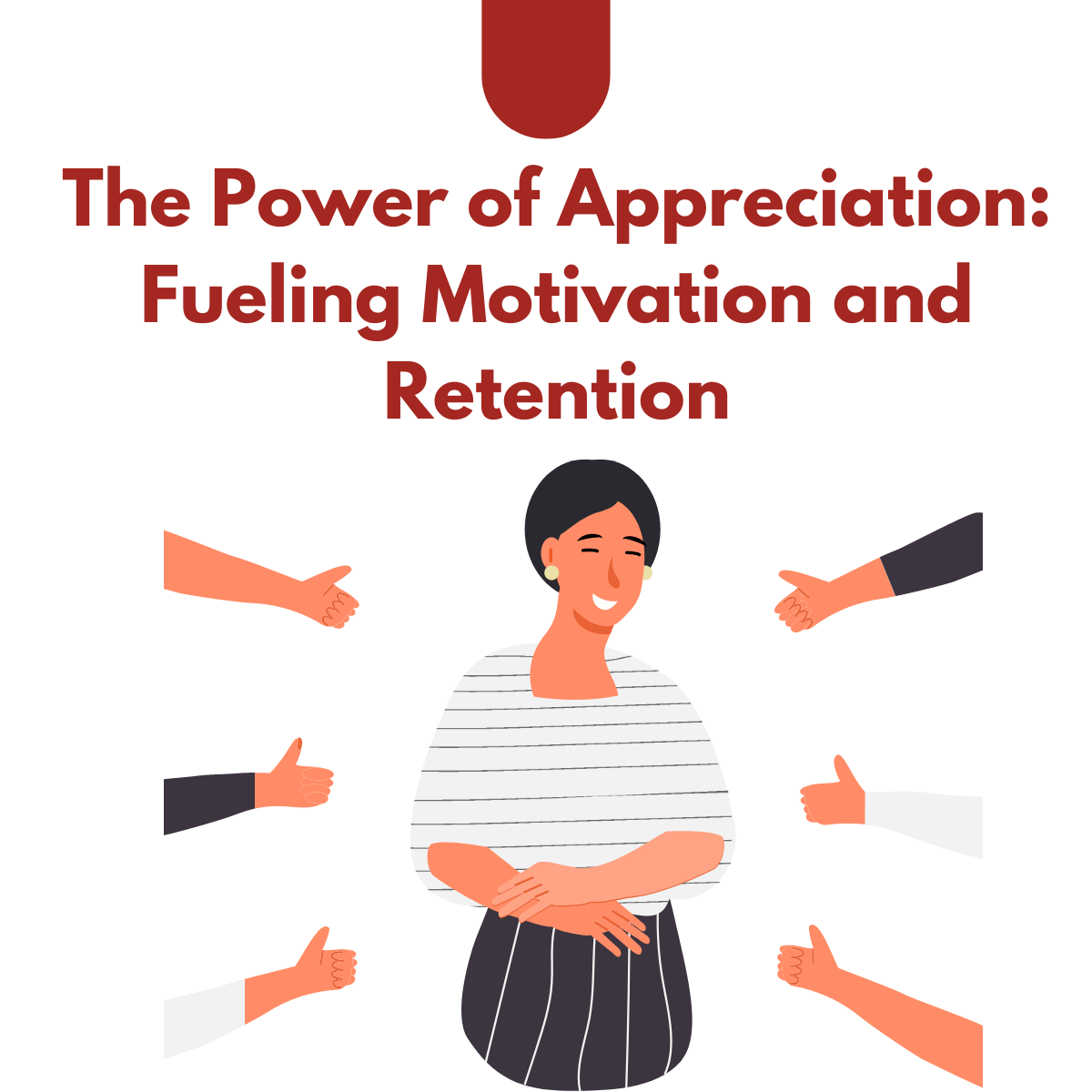The Power of Appreciation: Fueling Motivation and Retention

In today’s competitive job market, keeping employees happy and engaged is crucial for business success. One often overlooked yet highly impactful factor is employee appreciation. When employees feel valued and recognized for their contributions, it creates a ripple effect, boosting motivation, retention, and overall company performance.
The Motivational Magic of Appreciation
Humans are motivated mostly by their need for approval and a sense of achievement. When workers are appreciated, it serves as a potent affirmation that their efforts are valued. Their urge to keep up their good work is fueled by this affirmation, which increases their feeling of self-worth.
Appreciation goes beyond a simple “good job.” Specific recognition for achievements is even more effective. Imagine a salesperson exceeding their quota. A heartfelt acknowledgment highlighting their hard work and the impact on the company is far more motivating than a generic “keep it up.” This targeted appreciation reinforces the desired behavior, encouraging the employee to set and strive for even higher goals.
Building Loyalty and Reducing Turnover
One of the main causes of bright individuals quitting their employment is feeling underpaid. When someone feels valued and satisfied, they are less inclined to look for other alternatives. Employee recognition and lower turnover are clearly correlated, according to studies conducted by groups like the Society for Human Resource Management (SHRM).
Appreciation doesn’t just impact individuals; it strengthens the team dynamic. When team members feel appreciated for their contributions and witness others being recognized, it fosters a sense of camaraderie and collaboration. Employees become more invested in the company’s success, leading to a more engaged and productive workforce.
Beyond the Basics: Tailoring Appreciation for Maximum Impact
While a simple “thank you” is always appreciated, there are ways to maximize the impact of your appreciation efforts. Here are a few key considerations:
Specificity is King: While general compliments are good, particular acknowledgment of accomplishments has far more of an impact. Emphasizing the employee’s distinct input and its influence gives the gratitude a more intimate and significant feel.
Variety is Key: Different employees react differently when they are appreciated. While some people may thrive on attention from the public, others could choose a more secluded strategy. A well-rounded appreciation plan combines public and private acknowledgment in many forms, such as team meetings, individual rewards, or handwritten messages.
Tangible Rewards Can Sweeten the Deal: While financial incentives aren’t the sole motivator, tangible rewards like gift cards, extra time off, or additional development opportunities can add another layer of appreciation, especially when combined with sincere recognition.
Sincerity is Essential: For appreciation to be truly motivating, it needs to be genuine and heartfelt. Forced or inauthentic praise can backfire.
Investing in Appreciation: A Strategic Advantage
By incorporating appreciation into your company culture, you’re not just making your employees feel good, you’re making a strategic investment in your business. A motivated and loyal workforce translates to improved productivity, higher customer satisfaction, and a significant competitive advantage.
Remember, appreciation is a continuous process, not a one-time event. Regularly acknowledging and celebrating employee contributions fosters a positive and engaged work environment. When employees feel valued, they’re more likely to go the extra mile, propelling your company toward greater success.
